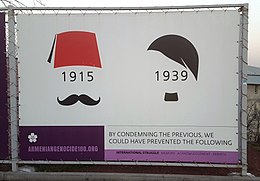
Forgetting or disremembering is the apparent loss or modification of information already encoded and stored in an individual's short or long-term memory. It is a spontaneous or gradual process in which old memories are unable to be recalled from memory storage. Problems with remembering, learning and retaining new information are a few of the most common complaints of older adults. Studies show that retention improves with increased rehearsal. This improvement occurs because rehearsal helps to transfer information into long-term memory.
Allan David Bloom was an American philosopher, classicist, and academician. He studied under David Grene, Leo Strauss, Richard McKeon, and Alexandre Kojève. He subsequently taught at Cornell University, the University of Toronto, Tel Aviv University, Yale University, École normale supérieure, and the University of Chicago.

Genocide denial is the attempt to deny or minimize the scale and severity of an instance of genocide. Denial is an integral part of genocide and includes secret planning of genocide, propaganda while the genocide is going on, and destruction of evidence of mass killings. According to genocide researcher Gregory Stanton, denial "is among the surest indicators of further genocidal massacres".
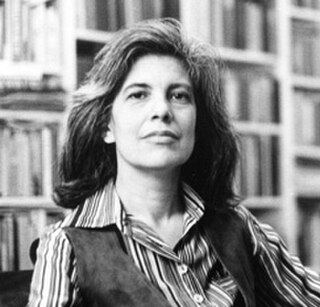
Susan Sontag was an American writer, philosopher, and political activist. She mostly wrote essays, but also published novels; she published her first major work, the essay "Notes on 'Camp' ", in 1964. Her best-known works include the critical works Against Interpretation (1966), Styles of Radical Will (1968), On Photography (1977), and Illness as Metaphor (1978), as well as the fictional works The Way We Live Now (1986), The Volcano Lover (1992), and In America (1999).

Daniel Jonah Goldhagen is an American author, and former associate professor of government and social studies at Harvard University. Goldhagen reached international attention and broad criticism as the author of two controversial books about the Holocaust: Hitler's Willing Executioners (1996), and A Moral Reckoning (2002). He is also the author of Worse Than War (2009), which examines the phenomenon of genocide, and The Devil That Never Dies (2013), in which he traces a worldwide rise in virulent antisemitism.

A literary genre is a category of literature. Genres may be determined by literary technique, tone, content, or length. They generally move from more abstract, encompassing classes, which are then further sub-divided into more concrete distinctions. The distinctions between genres and categories are flexible and loosely defined, and even the rules designating genres change over time and are fairly unstable.
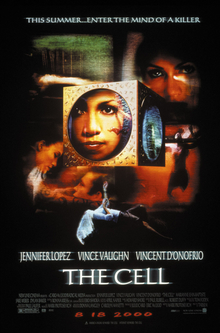
The Cell is a 2000 science fiction psychological thriller film directed by Tarsem Singh in his directorial debut, and starring Jennifer Lopez, Vince Vaughn, and Vincent D'Onofrio. The film follows scientists as they use experimental technology to enter the mind of a comatose serial killer in order to locate where he has hidden his latest kidnap victim.
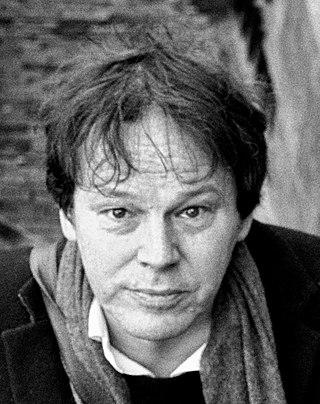
David Rolfe Graeber was an American anthropologist and anarchist activist. His influential work in economic anthropology, particularly his books Debt: The First 5,000 Years (2011) and Bullshit Jobs (2018), and his leading role in the Occupy movement, earned him recognition as one of the foremost anthropologists and left-wing thinkers of his time.

Collective memory refers to the shared pool of memories, knowledge and information of a social group that is significantly associated with the group's identity. The English phrase "collective memory" and the equivalent French phrase "la mémoire collective" appeared in the second half of the nineteenth century. The philosopher and sociologist Maurice Halbwachs analyzed and advanced the concept of the collective memory in the book Les cadres sociaux de la mémoire (1925). Collective memory can be constructed, shared, and passed on by large and small social groups. Examples of these groups can include nations, generations, communities, among others. Collective memory has been a topic of interest and research across a number of disciplines, including psychology, sociology, history, philosophy, and anthropology.

David Rieff is an American non-fiction writer and policy analyst. His books have focused on issues of immigration, international conflict, and humanitarianism.
Hyperthymesia, also known as hyperthymestic syndrome or highly superior autobiographical memory (HSAM), is a condition that leads people to be able to remember an abnormally large number of their life experiences in vivid detail. It is extraordinarily rare, with only 61 people in the world having been diagnosed with the condition as of 2021.
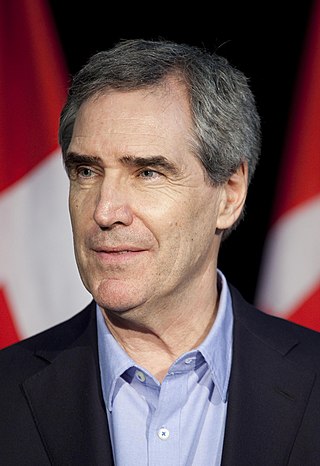
Michael Grant Ignatieff is a Canadian author, academic and former politician who served as the leader of the Liberal Party of Canada and Leader of the Official Opposition from 2008 until 2011. Known for his work as a historian, Ignatieff has held senior academic posts at the universities of Cambridge, Oxford, Harvard, and Toronto. Most recently, he was rector and President of Central European University; he held this position from 2016 until July 2021.
Because memory is not just an individual, private experience but is also part of the collective domain, cultural memory has become a topic in both historiography and cultural studies. These emphasize cultural memory’s process (historiography) and its implications and objects, respectively. Two schools of thought have emerged: one articulates that the present shapes our understanding of the past, while the other assumes that the past has an influence on our present behavior. It has, however, been pointed out that these two approaches are not necessarily mutually exclusive.
Politics of memory is the organisation of collective memory by political agents; the political means by which events are remembered and recorded, or discarded. Eventually, politics of memory may determine the way history is written and passed on, hence the terms history politics or politics of history. The politics of history is the effects of political influence on the representation or study of historical topics, commonly associated with the totalitarian state which use propaganda and other means to impose a specific version of history with the goal of eliminating competing perspectives about the past. In order to achieve this goal, memory regimes resort to different means such as narrating, strategic silencing, performing or renaming/remapping.

Guy Beiner is an Israeli historian of the late-modern period. He was formerly a full professor at Ben-Gurion University of the Negev in Beer Sheva, Israel. In September 2021, he was named the Sullivan Chair in Irish Studies at Boston College, becoming the director of Irish Studies and a professor in the history department.

Nostalgia for the Light is a 2010 documentary film by Patricio Guzmán to address the lasting impacts of Augusto Pinochet's dictatorship. Guzmán focuses on the similarities between astronomers researching humanity's past, in an astronomical sense, and the struggle of many Chilean women who still search, after decades, for the remains of their relatives executed during the dictatorship. Patricio Guzmán narrates the documentary himself and the documentary includes interviews and commentary from those affected and from astronomers and archeologists.

Freud: The Mind of the Moralist is a book about Sigmund Freud, the founder of psychoanalysis, by the sociologist Philip Rieff, in which the author places Freud and psychoanalysis in historical context. Rieff described his goal as being to "show the mind of Freud ... as it derives lessons on the right conduct of life from the misery of living it."

"Lest we forget" is a phrase commonly used in war remembrance services and commemorative occasions in English speaking countries, specifically those connected to the British Empire. Before the term was used in reference to soldiers and war, it was first used in an 1897 Christian poem written by Rudyard Kipling called "Recessional", a poem written to commemorate Queen Victoria’s Diamond Jubilee. The phrase occurs eight times; and is repeated at the end of the first four stanzas in order to add particular emphasis regarding the dangers of failing to remember.

"Never again" is a phrase or slogan which is associated with the lessons of the Holocaust and other genocides. The phrase may originate from a 1927 poem by Yitzhak Lamdan which stated "Never again shall Masada fall!" In the context of genocide, the slogan was used by liberated prisoners at Buchenwald concentration camp to express anti-fascist sentiment. The exact meaning of the phrase is debated, including whether it should be used as a particularistic command to avert a second Holocaust of Jews or whether it is a universalist injunction to prevent all forms of genocide.

A World Without Jews: The Nazi Imagination from Persecution to Genocide is a 2014 book by Alon Confino published by Yale University Press, which seeks to explain Nazi antisemitism and the Holocaust by looking into the imaginations and fantasies of Nazis. It received mixed reviews in scholarly and popular publications. Some reviewers praised Confino's analysis for its originality, while others criticize it for making assertions that are not sufficiently backed by evidence.

